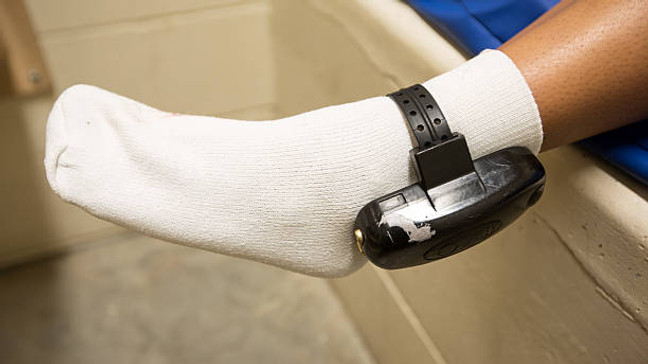A new law took effect Monday in Tennessee, requiring GPS monitoring for the most violent domestic offenders. This groundbreaking legislation, the first of its kind in the United States, emerged from a tragic incident that profoundly impacted one family and galvanized a movement for change.

A Law Born from Tragedy
On April 12, 2021, Debbie Sisco and her daughter, Marie Varsos, were shot and killed outside Nashville by Marie’s estranged husband, Shaun Varsos. Shaun later took his own life. He had broken into Debbie’s house, where Marie was staying, armed with guns, zip ties, and battery acid, demonstrating a lethal intent.
Shaun Varsos was out on bail after having strangled his wife and threatened her with a gun just a month earlier. Despite being a clear threat, the judge in his case did not mandate a GPS tracking device as part of his bail conditions. This decision haunts Marie’s brother, Alex Youn, who believes his mother and sister might still be alive if GPS monitoring had been required.
How GPS Monitoring Enhances Victim Safety
According to the CDC, one in four women and one in seven men experience domestic violence. The risk of repeat offenses is notably higher when firearms, strangulation, or stalking are involved. Jennifer Waindle, deputy director of the non-profit Battered Women’s Justice Project, emphasized, “When there’s firearms at play when there’s strangulation, when there’s elevated stalking, [offenders] are more likely to do it again.”
The newly enacted law mandates GPS tracking for aggravated assault offenders in domestic violence cases. This technology can be a lifesaver, alerting victims through a phone app or electronic device if an offender violates a protection order. This includes moving within a certain radius of the victim or breaching designated exclusion zones, like the victim’s home.
Ray Gandolf, director of business development for Tennessee AMS, advocates for the use of GPS technology as a crucial safety tool. “Every second matters,” Gandolf said. When an offender violates the protective parameters, the victim receives multiple alerts, including texts and emails. A monitoring center also notifies law enforcement immediately. These alerts provide a crucial time for victims to seek help or find safety. “They can position themselves in a safe place, lock themselves in a place where they have the opportunity to call 911 and get help dispatched to them immediately,” Gandolf explained.
A Model for Nationwide Adoption
Youn hopes that Tennessee’s pioneering approach will inspire other states to adopt similar measures. “I’m hopeful that other states will potentially sort of look at what Tennessee is sort of doing and take this and implement it in other states as well,” Youn said, expressing his desire to see widespread implementation of GPS monitoring laws.

In memory of Debbie Sisco and Marie Varsos, this law stands as a testament to their lives and a beacon of hope for the future. If you or someone you know is experiencing domestic violence, contact the National Domestic Violence Hotline by calling 1-800-799-SAFE (7233), visiting www.thehotline.org, or texting “START” to 88788.
